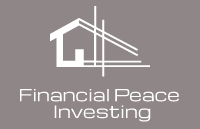Clarify the Objective
Investing is more than just a financial strategy; it’s a way of aligning your resources with your life’s goals and values. Understanding the purpose of money is crucial to making informed and meaningful investment decisions. This article explores the foundational concepts that will guide your journey toward financial peace, illustrated with my personal experiences and insights.
The Intrinsic Value of Money
In 2011, when I first started my job after I got my Ph.D degree in the United States, I was full of ambition and drive. Having grown up with a deep respect for education and hard work, I had achieved what many consider the American Dream—a well-paying job in a thriving industry. Yet, even then, I understood that money in itself held no true value. It was a tool, a means to an end, not the end itself.
I vividly remember my determination to save up my earnings. My goal was clear: to invest in rental homes that could provide a steady stream of passive income. This was not just about securing financial stability; it was about achieving something deeper—financial freedom. I knew that with financial freedom, I could reclaim my time and use it more meaningfully, whether that meant spending more time with my family, pursuing personal passions, or contributing to my community.
This early understanding that money was merely a conduit to achieving larger dreams set the foundation for my investment philosophy. Money’s true value emerged when it was used to create opportunities, provide security, and facilitate a life aligned with my values and beliefs.
Comfort vs. Riches
There exists a common pitfall: the desire for comfort. While many people equate comfort with security and happiness, it actually limits their potential for wealth and success. Comfort is a state of complacency that can prevent individuals from striving for more. In the case of the pursuit of wealth, suggesting that true financial success requires stepping out of one’s comfort zone and taking risks. It is important to remain content with what you have, but contentment is not equal to comfort. Mentality of comfort leads to mediocrity, whereas aiming for wealth not only brings financial rewards but also creates a more dynamic and fulfilling life. This dichotomy is underscored by the idea that comfort does not lead to riches, but aiming for riches often results in a comfortable life. The key is setting high goals and keep a dream for life.
Setting High Goals
We encourage investor friends to rethink their financial goals by significantly raising their targets. I challenge them to imagine achieving ten times their current goals in terms of both income and net worth, and what that financial situation can help them live the life differently. This exercise serves to expand their vision of what is possible and push them beyond self-imposed limitations. The act of setting such high goals is not just about aiming for a larger number but about transforming one’s mindset to think bigger and embrace greater possibilities. This approach is intended to combat a common problem: most people set their goals too low and achieve them, leading to a life of unrealized potential.
Keep a dream for life
The subconscious beliefs and attitudes individuals hold about money and wealth, often formed in childhood and influenced by parents and societal norms, shape one’s financial reality. Many people have a negative money blueprint that limits their ability to accumulate wealth. For instance, beliefs that “money is the root of all evil” or “rich people are greedy” can create internal conflicts about becoming wealthy. On another extreme, many believe “money is the solution to most if not all of life’s problem”, “money is the most important goal in life.” And are bonded as a slave to money in their life, working for money, driven by the fear of losing money and unhealthy desire to accumulate money. It is important to identify and change these limiting beliefs to create a new blueprint that supports financial success. This involves introspection and the deliberate adoption of empowering beliefs about money and success. It is important to understand wealth creation not just for personal gain but also as a means to contribute to society. Creating wealth should be seen as a positive and purposeful endeavor. By becoming wealthy, individuals gain the ability to help others, support charitable causes, and make a positive impact on the world. This dual focus on personal success and societal contribution redefines wealth as a tool for good rather than a selfish pursuit.
Money as a Tool for Achieving Dreams
Wealth creation as a moral and ethical duty, particularly for those who have the capacity to do so. With the proper view of wealth we can shift the common narrative around wealth and position it as a force for positive change in life. An important aspect of the mindset is the concept of “both/and” thinking, as opposed to “either/or” thinking. This involves rejecting the notion that one must choose between wealth and other desirable qualities such as kindness, spirituality, or time for family. It is not only possible to have both wealth and a balanced, fulfilling life, but it is a necessary route. This mindset is based on abundance rather than scarcity, promoting the idea that resources and success are not limited but can be expanded through positive thinking and effort. By adopting “both/and” thinking, individuals open themselves up to greater possibilities and opportunities. This shift in perspective is seen as crucial for breaking free from limiting beliefs and embracing a more expansive view of what life can offer.
Viewing money as a tool shaped my approach to investing. From the start, I practiced delayed gratification, understanding that the sacrifices I made today would pay off in the future. I let go luxuries and comfort in the short term to save more aggressively, all the while keeping my eyes on the ultimate prize: financial independence.
My early investments were humble—small rental properties that provided modest returns. However, these investments were more than just financial decisions; they were steps toward a vision of a life where I was not bound by the constraints of a traditional job. I envisioned a life where I had the freedom to spend my time as I chose, whether that meant being present with my family, pursuing creative endeavors, or engaging in ministry work.
This period of my life taught me a crucial lesson: the power of intentionality. Every dollar saved and invested was a step closer to my dream. Each investment decision was made with the understanding that it was a tool to achieve a broader purpose, not just to increase my bank balance.
Balancing Ultimate Goals and Means
As my investment journey progressed, I faced the challenges of balancing my ultimate goals with the means available to me. The allure of quick profits in risky investments was ever-present, but I remained committed to a disciplined, patient approach. I diversified my portfolio, focusing on stable, cash-flowing properties that would provide a steady income stream.
This approach required a keen understanding of risk management. I knew my comfort level with risk and stuck to it, avoiding the temptation of high-risk, high-reward opportunities that could jeopardize my financial security. I avoid investing in the area that I do not fully understand, but if I see there are great opportunities in certain areas and worth exploring, I first invest my time and effort to get well educated in that area before I invest my hard-earned money. This discipline was not just about protecting my investments; it was about protecting my vision for the future.
During this time, I also deepened my understanding of the ethical dimensions of investing. I wanted my investments to reflect my values, supporting ventures that aligned with my beliefs and had a positive impact on society. This meant sometimes choosing slower-growing but ethically aligned investments over more lucrative options that conflicted with my values.
As I continued to invest, my portfolio grew, and with it, my confidence in the path I had chosen. The financial freedom I sought was not just about money; it was about creating the conditions for a life where I could fully live out my values and passions. This included founding Financial Peace Investing, a platform dedicated to helping others achieve similar goals.
In sharing my journey, I hope to convey that the goal of investing is not just about accumulating wealth. It’s about building a foundation for a life of purpose and peace, where money is a tool to achieve your dreams and make a positive impact. As you read along, consider how your financial decisions align with your life’s purpose and how you can use your resources to create a fulfilling and impactful life.
The journey to financial peace is ongoing, and it requires continuous learning, discipline, and alignment with your values. In the following chapters, we will explore practical strategies and deeper insights to help you on this path. Remember, the ultimate goal of investing is not a destination but a continuous process of growth, learning, and living in alignment with your true self.
At Financial Peace Investing LLC, we’re committed to helping you navigate these changing market conditions and seize the opportunities they present. If you’re ready to explore investment options in commercial real estate, contact us today! We work with our partner operators in various commercial real estate markets and niches, and there are plenty of opportunities in apartment buildings, self storage facilities, industrial warehouse, medical/dental offices that investors can participate through the syndication structure. And self directed IRA fit very well in quite of those equity investment opportunities. Feel free to ask questions through email (peter@financialpeaceinvesting.com) or Schedule a call with me. Happy investing!
Disclaimer: This information is for general and educational purposes and not intended as legal, tax, accounting, securities, or investment advice, nor an opinion regarding the appropriateness of any investment, nor a solicitation of any type.



